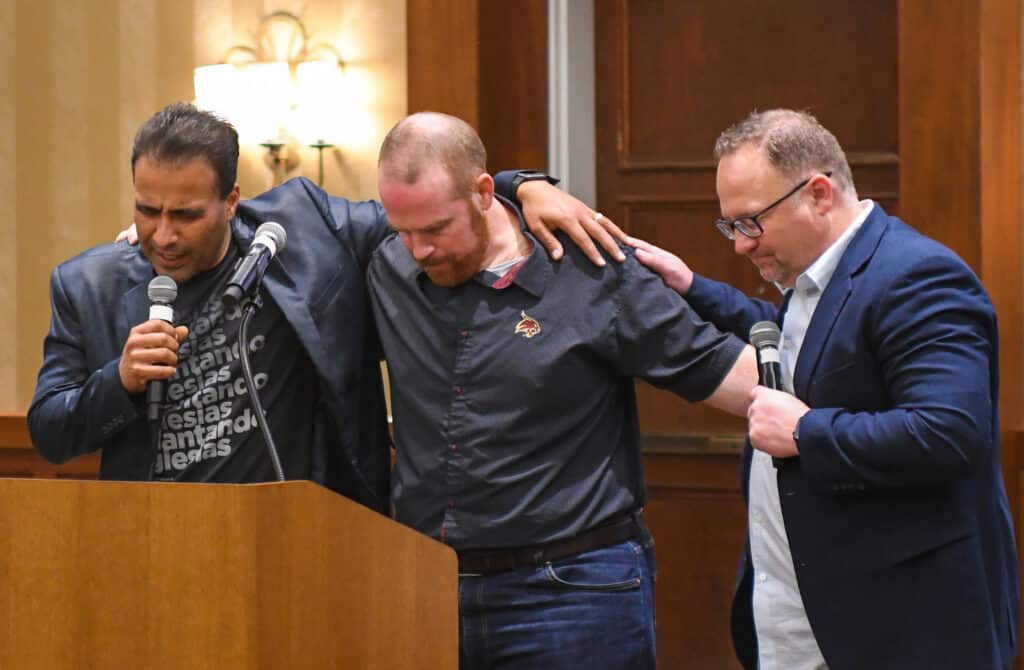Lamar E. Cooper is the interim president, as well as executive vice president, provost and professor of Hebrew and Old Testament, at Criswell College in Dallas. He is also a premillennial dispensationalist, who has to his credit the Ezekiel volume of the New American Commentary. He granted the TEXAN an interview in which he offered his insights on dispensationalism and other related issues.
Q: Why do you hold to a dispensational position?
A: Every true exegete of Scripture is a dispensationalist, I believe, because the Bible has two parts: the Old Testament or Old Covenant and the New Testament or New Covenant. These are two different and contrasting dispensations, one based on law and the other based on grace. The writer of Hebrews 12:26-29 joins the prophet Haggai (2:6-7) in identifying two kingdoms. One kingdom is a shakable kingdom which will be removed, the other a soon-coming unshakeable kingdom that is eternal. That is two separate and contrasting dispensations. Premillennialists, of which I am one, see these clear, easily understood, and exegetically significant truths in the Bible. It is difficult for me to see it in any other way. Dispensational theology can mean a lot of things. Clarence Larkin divided human history into seven dispensations and worked out complicated charts to illustrate his dispensational ideas. C.I. Scofield popularized premillennial dispensationalism and came up with specific dates for the change from one of the various dispensations in human history to another. Unfortunately, when you identify yourself with dispensational thought, many people put you in this category. I am neither a Larkin nor a Scofield premillennial dispensationalist, but I do not shrink from the truth because someone else has taken excessive liberties with it. I agree with my mentor W.A. Criswell that premillennial dispensationalism is a logical conclusion from the simple exegesis of the inerrant Word of God.
Q: Do you think the dispensational view is fading from the SBC landscape?
A: I believe there are fewer of us and mostly the older generation that hold some sort of dispensational view of Scripture. Most shy away from it because of the association of the names of Larkin and Scofield. The younger generation does not understand that “dispensationalism” is not a dirty word in theology. Just because it is sometimes misused in the present or past does not mean that it is not worthy of consideration. As previously noted, everyone should see that there are at least two dispensations except for those of course who throw out the Old Testament altogether.
Q: Is dispensationalism the dominant view at Criswell College?
A: Most of our younger faculty members have never really worked through this issue perhaps because of the lack of knowledge about it, so they have not embraced it. The older faculty?Leroy Metts, James Bryant and myself?hold various views, but would generally affirm some form of dispensational thought.
Q: What’s your take on Blaising and Bock’s book titled “Progressive Dispensationalism”?
A: I generally like the progressive dispensational position, although I don’t embrace every aspect of it as presented by Blaising and Bock. They do have one advantage over other positions which generally lead to replacement theology when it comes to Israel. I am not a replacement advocate, so I think this is one of the valid points of the progressive view.
Q: What’s your opinion of Dr. Patterson’s “12 points” [outlined in the lead article by David Roach]?
A: I agree with Dr. Patterson’s 12 points. I think he clearly lays out the essentials of an orthodox eschatology.
Q: What do you see as the most glaring error made by historic premillennialists, postmillennialists, and amillennialists?
A: I believe it is the failure to see the place of Israel as a part of God’s plan in the present day and in the end time. The idea that the church has replaced Israel is an erroneous one in my view.
Q: In the lead article of this report, by David Roach, he writes: “Some dispensationalism systems see the state of Israel as playing a central role in the end times while historic premillennialists and amillennialists do not see God’s kingdom as linked to a single political state.” Do you have a response to this statement, especially with regard to Israel?
A: One of the facts overlooked by those who want to dismiss the current state of Israel is that Israel is the one nation that was founded by God as presented in Exodus 19:1-8. God clearly defined that, Israel, as his people, would play a part in the last days. That the modern state of Israel came into being through a political process does not invalidate her claim of identification with the Israel of the Old Testament. God clearly states he will use means to restore Israel in the latter days, an event that the whole world witnessed in 1948. It is clear that Israel, while a secular state, is also a state that endorses Judaism as the sanctioned national religion. I believe Israel of today is validated by the prophetic statement, especially those in Ezekiel, Amos, Haggai and Zechariah concerning the restored nationof that name in the last days.














